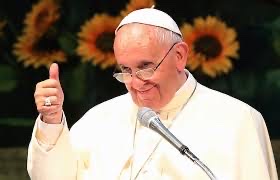Kurgan doesn't understand the Sacrament of Holy Orders.
"Once a priest, always a priest" has always been true in the Catholic Church. Let's look at where this came from. First Canon Law, and then the Council of Trent.
Canon 211
1 - Although sacred ordination, once validly received, can never be invalidated, nevertheless, a major cleric can be returned to the lay state by a rescript of the Holy See, by a decree or sentence according to the norm of Canon 214, or finally as a penalty of degradation.
Canon 109
1 - Those who are taken into the ecclesiastical hierarchy are not bound thereto by the consent or call of the people or secular power, but are constituted in the grades of the power of orders by sacred ordination; into the supreme pontificate, by divine law itself upon the completion of the conditions of legitimate election and acceptance, in the remanding grades of jurisdiction, by canonical mission.
Commentary on Canon 109 - Dom Augustine
This canon, the first clause of which is taken from the dogmatic canons of the Council of Trent (footnote here that says, “Council of trent session 223, can. 4), is directed against certain innovations which cropped out throughout the history of the Church, but were introduced especially by the so-called reformers of the sixteenth century. The “consent of the people” was the favorite cry of Arnold of Brescia and his followers, in the twelfth century. It was repeated by Wiclif and Huss, Calvin and Zwingli. Against these the Council of trent declared it as an article of faith that the people have no voice in the choice of ministers. The consent of civil power was favored by Luther, and partly also by Zwingli at the Council of Zurich. Both demands are excluded by the very organization of the Church and its nature as a societas inaequalis.
So, we see here that the Sacrament of Holy Orders can never be invalidated, of simply, “Once a priest, always a priest”. And this works like ALL the other sacraments:
Baptism - Once baptized, always baptized
Confirmation - Once confirmed, always confirmed
Holy Orders - Once ordained, always ordained.
Marriage - Once married, always married.
The Eucharist - Once consecrated, always consecrated
Penance - Once forgiven, always forgiven (well, until the next sin anyway)
Anointing of the sick - Once anointed, always anointed.
From the Council of Trent, Session 23, can. 4:
”If anyone say that by this same ordination no character is imprinted, or even that he who has since been a priest, may ever become a layman, let him be anathema”
For those who don’t know the definition of “anathema”, here it is:
Anathema - A solemn condemnation, of Biblical origin, used by the Church to declare that some position or teaching contradicts Catholic faith and doctrine.
Holy Orders, like ALL of the Sacraments, have been instituted by Jesus Christ Himself. The Sacraments are not a human invention.
From the Council of Trent, session 23, can. 3:
“ If anyone say that holy orders or ordination is not a true sacrament properly so called, instituted by our Lord Jesus Christ, or that it is a human invention…..or only a certain manner of choosing ministers of the word of God and of the sacraments: Let him be anathema.
STRAIGHT FROM KURGANS BOOK
From Kurgans book, commenting on the “heresies” of the Vatican II Document, “Decree on the Bishops’ Pastoral Office in the Church (page 195):
“We see the beginnings of heretical stench when we read passages right in the preface such as (emphasis added)
Bishops, therefore, have been made true and authentic teachers of the faith, pontiffs, and pastors through the Holy Spirit, who has been given to them.
The Holy Spirit is given to them? Sounds like some kind of amulet or the co-location of the Holy Spirit within them, as if one of the aspects of the Triune God permanently resides in them. Yup, definitely savours of heresy right there, but that’s being generous…”
So, we see from Kurgan’s own words that he thinks that the Bishops are NOT given the Holy Spirit. He pokes fun at this. he laughs at this. he thinks it’s obvious that this is true, and he thinks it is heretical if you believe that the Holy Spirit IS given to the Bishops. Let’s see what the Council of Trent has to say:
The Council to Trent, session 23, can. 4:
“If any one say that the Holy Ghost is not given through sacred ordination, and that consequently it is in vain that Bishops say, “Receive the Holy Ghost”,…..:let him be anathema”
So, the one claiming to expose heresy is proven, by the Council of Trent, to be a heretic. Do you people who follow kurgan bother to research anything he states as fact? This is getting way too easy….

Comments
Post a Comment